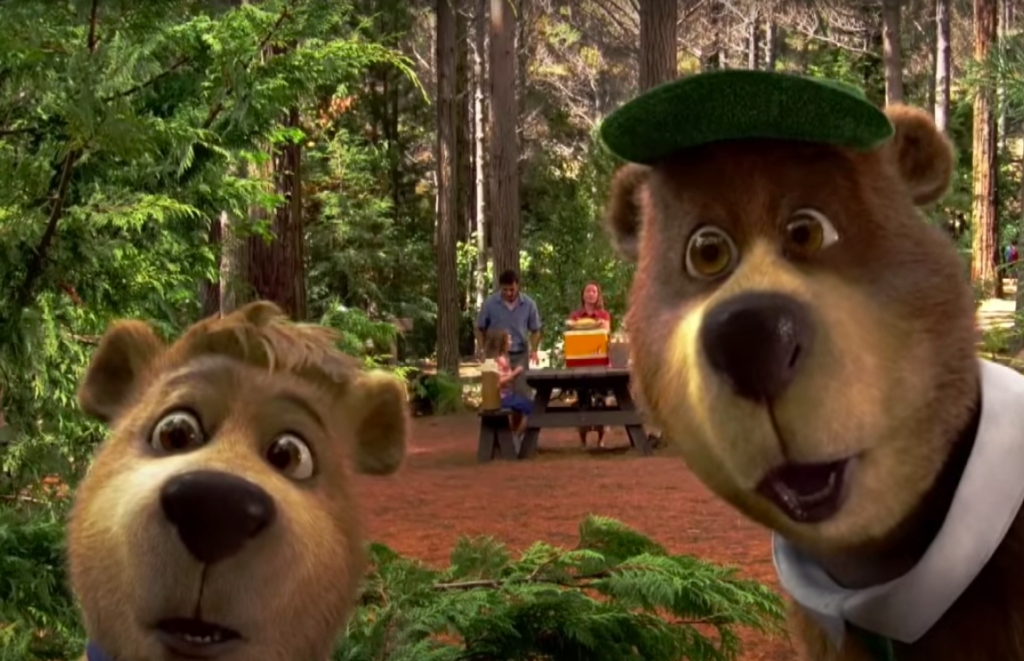Yellowstone sucks.
Och! — but you knew that.
Wait … umm … we can agree on that right?
+
Prolly not — else why this blog post and the recent headline that its ‘creator’, Taylor Sheridan, said Season 4 is in the can.
+
I tried to get through Season 1 again.
Had bought it a couple years back when new, completed and left feeling unease, knowing it wasn’t good, but it had horses and cowboys and guns and Kelly Reilly.
Wasted time but meh, whattya gonna do?
Went back to it of late … oh my.
I trusted Taylor Sheridan.
Twice.
I knew, tho, when we started spending a lot of Season 1 in the hospital, that I’d made a horrible mistake. Got as far as the penultimate episode. Just cldn’t finish. Walked out, as it were.
[An old friend once taught me when a show ends up in the hospital, it’s a soap opera. Think Downtown Abbey — also crap TV, and modernist propaganda besides; also a fundamentally flawed bit of false attempt at story; of which more, see below.]
In my own defense, well … see below.
+
Of course, defending myself is irrelevant, as you may’ve guessed when reading that line.
+
The ‘creator’ deserves the weasel quotes there because he didn’t create it. Yellowstone is Dallas like Dynasty was Dallas, like, hell, Beverly Hills 90210 was Dallas for teens.
Jesus, it’s The Big Valley, only with 21st century tropes and traps.
And yes, these are the references my generation knows because hell, yes, again [and again and again and again] the oh! the humanity! is the timeless tale of people in community that crap TV foists on us, every couple years, or more often if they can get it.
That is both its boon and bane.
Boon because it’s the timeless tale of humanity thrust among one and other — and in the case of Yellowstone’s Beth, thrust among any dude or, have later seasons found out?, any sentient being, with a pulse, bec she’s broken ya see and that’s what broken people do.
But it is boon, legit, because we care about people and shd.
Movies, television, books, music — everything will be about people in relationship, or not; it’s what we are, it’s what we want to do well, it’s what we do poorly, it’s what we’re scheming, executing and dying of and from.
Art is other people.
Art is us.
But Yellowstone is all this badly done and we shd care ‘bout that too.
Books cd be written on this — books that wd once again be better than the movie — but the short bloggy version is that the relationships do not relate, the people are caricatures and clichés, events are, OK … realish enough, and how cd they not be since it’s marriage and family; kids and jobs; money, sex, danger, race, anger, politics, war, peace — but the clichés in unrelatable pinging against one another, like the subatomic particles that are all we believe in these days …
Well, I take that back.
Often and at least when I end up seeing stuff like this, I wonder if this is how humans are ‘relator’ to one another … I realize don’t we do this all the time?
We are like this.
And as such we are ‘creator’ as well — our actions spawning reactions, and new actions and reactions, all the time.
+
Stories help by telling themselves well.
+
It doesn’t help to have them badly done.
+
It salves as pot or painkillers or pizza or Park Avenue [the money] or Park Avenues [the gin] or Pearl Harbor [the nostalgia] or Pearl Harbor [with vodka] or politics.
Did I try too hard with that one?
See what trying too hard gets us?
+
It gets us bad analogies and Yellowstone.
Trying easier — I know it sounds strange.
Trying easier – can produce less, naught.
Trying easier — taps into something else.
+
Trying too hard gets us something else. Not telling truths or story at all — think Disney, which doesn’t tell stories but uses them to sell a bunch of crap — gets us something else
Truth and story persevere because they’re real and deep down; just see how long it’s taking Disney to kill Star Wars. But every lie matters.
+
Trying easier means the up above bit about stories telling themselves.
Trying easier means telling the simple truths, ungussied, and people who do that and have talent end up creating something more with less.
This is the Taylor Sheridan of Hell or High Water, Sicario, and, to a lesser extent, Wind River.
They aren’t without flaws — even Hell, which I’ve seen maybe 10 times and starts showing its cracks around viewing three or four — but they earned the trust.
They’re also about humanity — people, relationship, events. The first has brothers and lovers and kids and money and death and the land and the law. Hell, it even has Sheridan himself, as the rancher running a herd of cattle away from the brush fire and remarking on his kids who don’t want to be cowboys.
Sicario and Wind River have them too — friends and friends-as-brothers and brothers and partners and lovers and kids and money and death, the land and the law.
It’s only a partial list.
These possess everything.
[Especially the land — pay attention to the land in these three — it’s big. Not just ‘the cathedral is a character in Hunchback of Notre Dame big. Like really big.]
These are truths.
They are stories.
They don’t, in the main, try too hard. They tell the truths, they tell the story and the stories.
It still takes work but not trying.
Which can’t be explained.
We know such as we see.
They earned it.
Yellowstone —
- cliché
- fakery
- bad Art
— squanders it.
